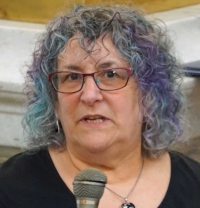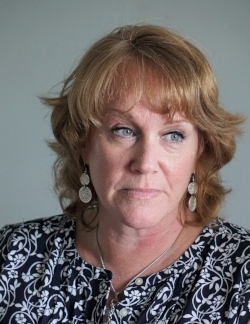RI Governor's DD Budget Would Add $8.7 Million in Medicaid Funding For Wages, Higher Costs
/By Gina Macris
Rhode Island Governor Gina Raimondo’s recently released budget proposal would add nearly $8.7 million in new funding to the system of privately-run services for adults with developmental disabilities in the next 17 months, through June 30, 2020.
Most of that overall $8.7-million-increase, $6.4 million in federal and state Medicaid money, would fund raises for workers of some three dozen private agencies that provide developmental disability services under contract with the Department of Behavioral Healthcare, Developmental Disabilities and Hospitals (BHDDH).
The raises would take effect July 1. Funding for the added wages - an estimated 44 cents an hour – is carved out in the budget bill for Fiscal Year 2020 that Raimondo has submitted to the General Assembly.
The budget bill also requires that almost $1.6 million in federal-state Medicaid funds be earmarked for technical assistance to private providers changing from segregated care to community-based, integrated service to comply with a 2014 federal consent decree.
The current overall spending level for developmental disabilities, $271.7 million, would increase to $273.1 million for the budget ending June 30. In the next fiscal cycle beginning July 1, the spending ceiling would rise to nearly $280.9 million, including federal, state and miscellaneous sources of revenue.
The Division of Developmental Disabilities (DDD) draws more than half the resources assigned to BHDDH – which is currently budgeted for a grand total of almost $422.5 million. Under Raimondo’s plan, the bottom line for the entire department would grow to about $448.5 million in Fiscal 2020 – an increase of $26 million, including about $19.7 million in supplemental funding for the existing budget.
Developmental disability services are financed through the federal-state Medicaid program, with the federal government paying nearly 53 cents on the dollar.
The governor’s executive summary, however, tends to focus on the state outlay alone. It says $3.1 million in state funds would be earmarked to cover an existing deficit and an additional $3.3 million would be set aside in the fiscal year beginning July 1 for increased caseload costs.
Those budget items, combined with the state’s share of the $6.4 million proposed wage increase - $3 million – add up to $9.4 million, nearly twice the overall $5 million in new state tax dollars that Raimondo would apply to developmental disabilities for the remainder of the current fiscal year and the next one.
The state would have to use savings in other areas to fully fund Raimondo’s plan for developmental disabilities, but neither the budget language nor the governor’s narrative spells out which cost-cutting measures would fill the gap.
The first-quarter spending report for BHDDH put the projected deficit in developmental disabilities at a total of $7.6 million for the current fiscal year, including federal and state funding.
The updated report for the second quarter will not be ready until Jan. 31, according to BHDDH officials.
But at a recent press briefing on the budget, Rebeca Boss, the BHDDH director, said she is satisfied that the governor’s proposal will enable the department to balance its current budget.
Among other things, the plan would restore money in the current budget that the DDD otherwise would have saved if it had won federal approval for a “Health Home,” a Medicaid option featuring a managed-care approach that also provides for a third-party to coordinate services for individuals.
The Health Home would help DDD comply with a Medicaid rule for Home and Community Based Services which requires case management to be separate from funding or service delivery. Currently DDD is responsible both for funding and for case management, which Medicaid perceives as a conflict of interest.
Boss said BHDDH has not yet submitted an application for a Health Home option for developmental disabilities. The budget assumes that a health home plan for developmental disabilities will be approved and go into operation during Fiscal 2020, which begins July 1.
Medicaid will reimburse 90 percent of the state outlay for health homes for a maximum of two years. After that period, the reimbursement rate for health homes will drop back to the regular rate for Rhode Island, whatever it may be at that time..
To help close the current deficit, the governor recommended an additional $273,412 in state revenue for BHDDH to pay homemaker licensed practical nurses who work with adults with developmental disabilities. The Executive Office of Human Services granted them a slightly higher pay increase than BHDDH had budgeted and the General Assembly had approved.
In adding $3.3 million in state revenue for “caseload” expenditures for the 2020 fiscal year, Raimondo’s executive summary said she “accepts the Department’s (BHDDH’s) most up to date projections” on costs, “ensuring no changes to services for DD consumers and continued financing to improve achievement of consent decree mandated services.”
Last year at this time, Raimondo had proposed cutting a total of more than $18 million in federal-state funding from developmental disability services, with a spokeswoman for the Office of Management and Budget saying the proposed reduction was based on calculations made from “estimated growth rates in the cost of providing services.” She did not elaborate.
Raimondo, pressed by the independent court monitor overseeing the implementation of a 2014 federal civil rights consent decree, eventually restored the funding and pledged the state’s support of the work ordered by the federal court.
The consent decree requires Rhode Island to correct violations of the integration mandate of the Americans With Disabilities Act, reinforced by the 1999 Olmstead decision of the U.S. Supreme Court, by ending its over-reliance on sheltered workshops and segregated day care.
This year, according to Boss, BHDDH submitted cost projections on the basis of actual claims, as directed by the Executive Office of Health And Human Services, rather than individual funding authorizations.
In the process of updating projections, the data was refined to remove claims that had been double-counted on Medicaid rolls of both BHDDH and EOHHS, according to the executive summary of the budget.
For Fiscal 2020, the governor’s budget summary highlighted three additional areas for savings:
·A continuation of “residential rebalancing”, a multi-year effort to reduce the number of people in group homes, a cost-saving measure that also is intended to provide more “community-based placements such as shared living.” The budget projects $1.5 million in “residential rebalancing” in 2020.
Closure of one state-operated group home for an estimated savings of nearly $92,000. The staff in that location will move to other sites, reducing the need for overtime in the state-run system.
So-called “right sizing” of staffing at the state-run group home system to realize additional projected savings of $202,721. “Right-sizing” means staffing patterns will be reassessed and employees will re-bid jobs. This change is expected to reduce overnight staffing and further reduce overtime costs.












